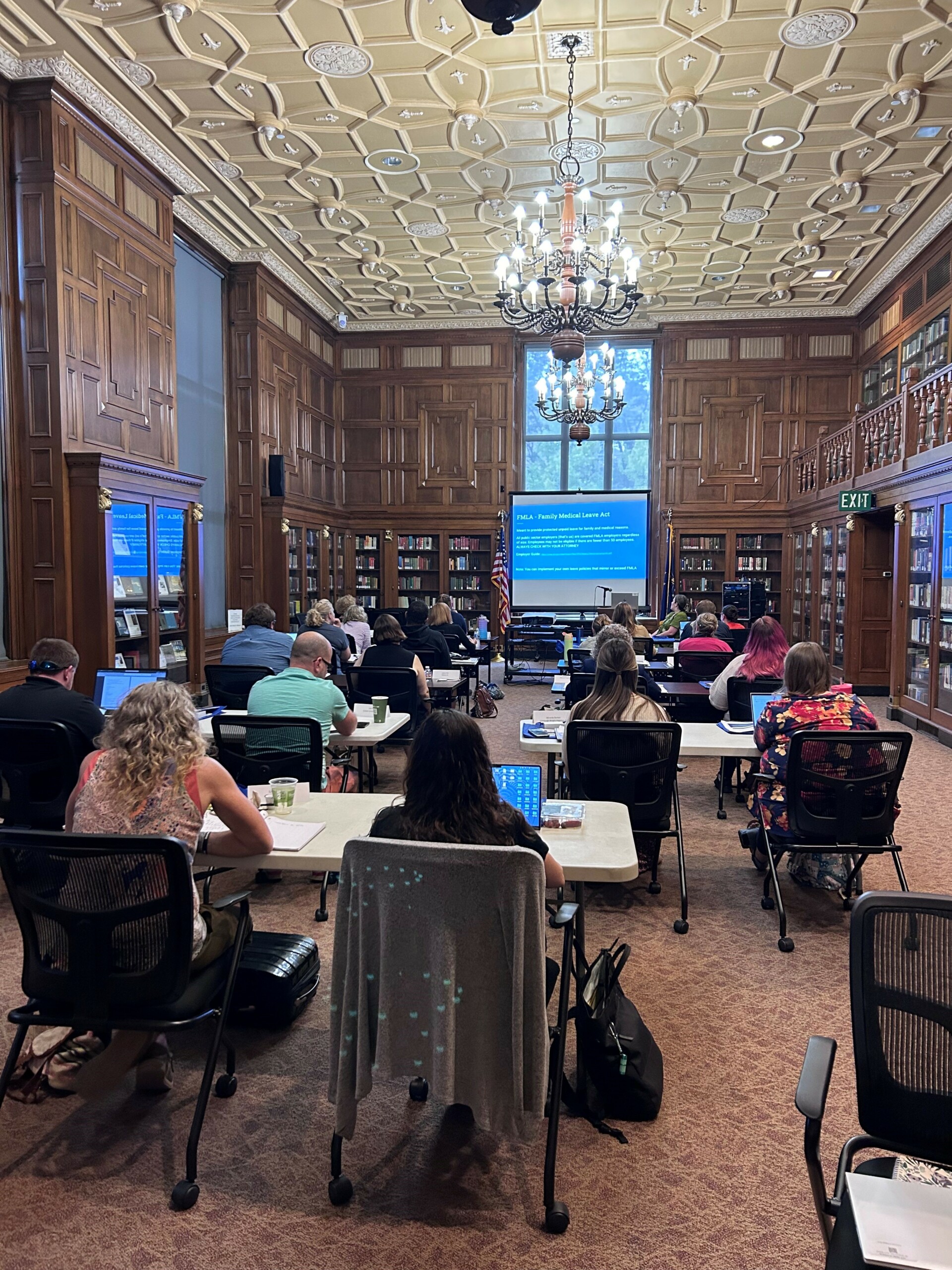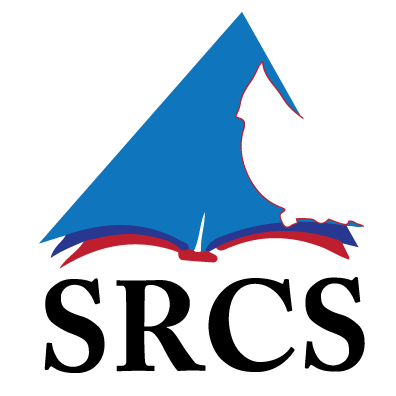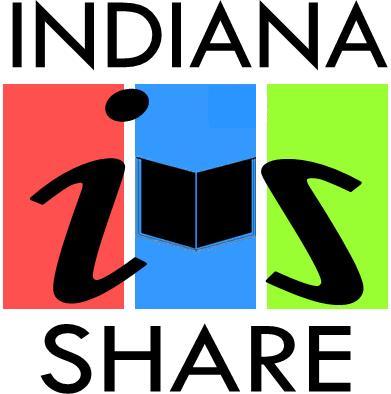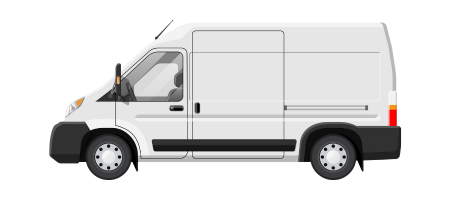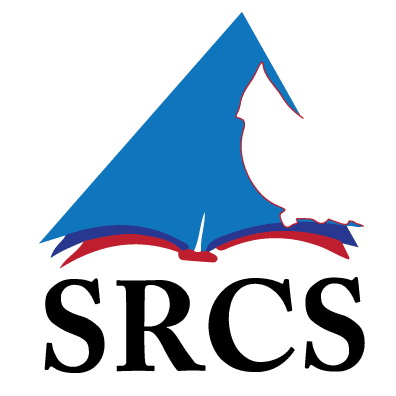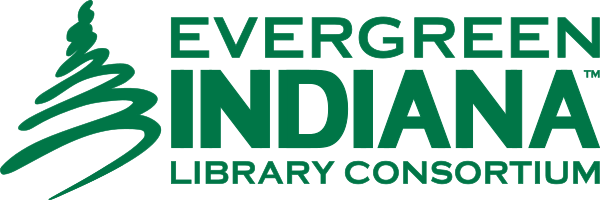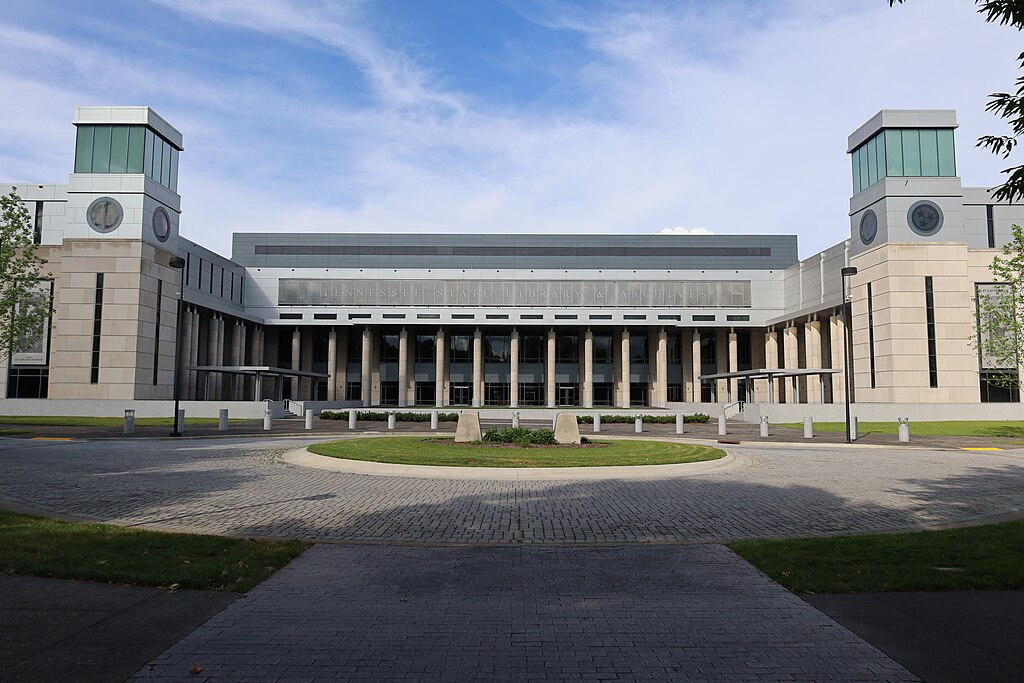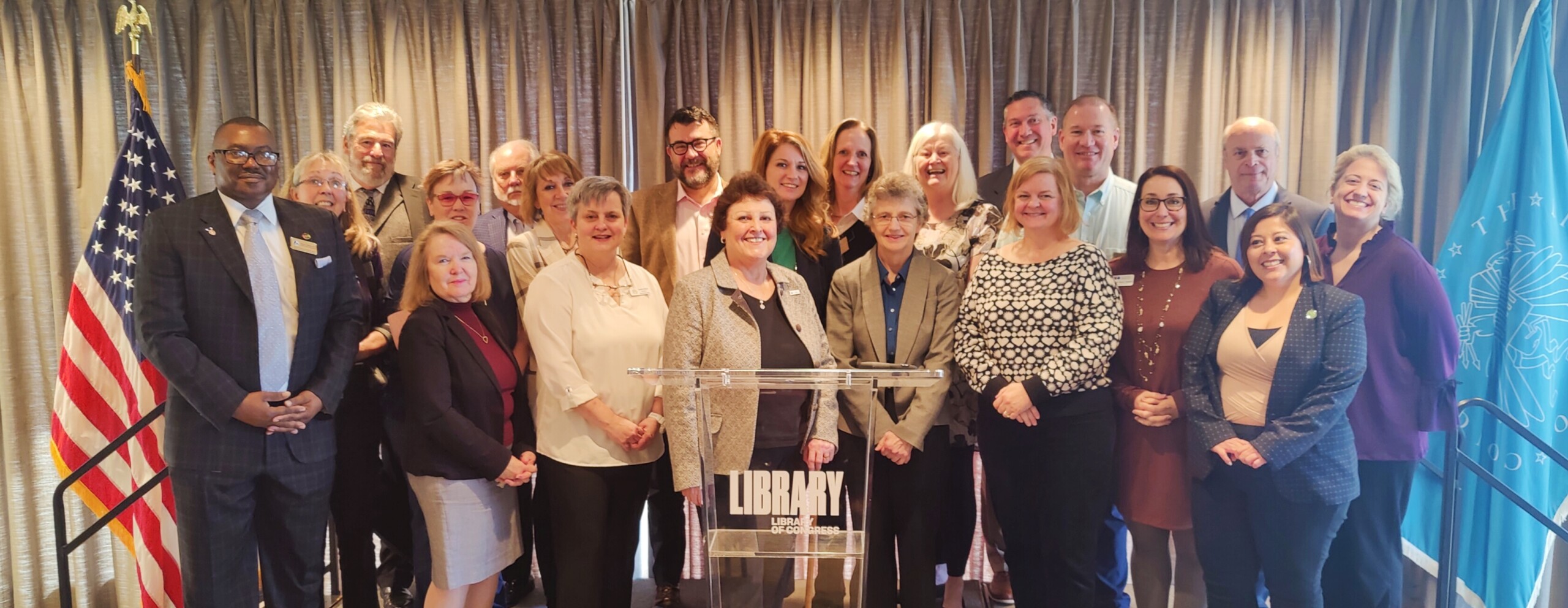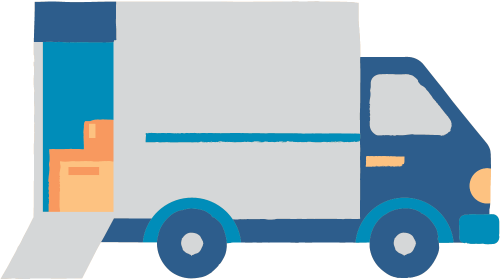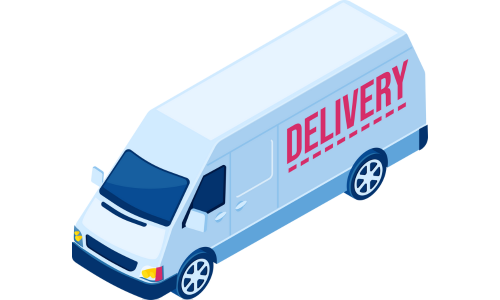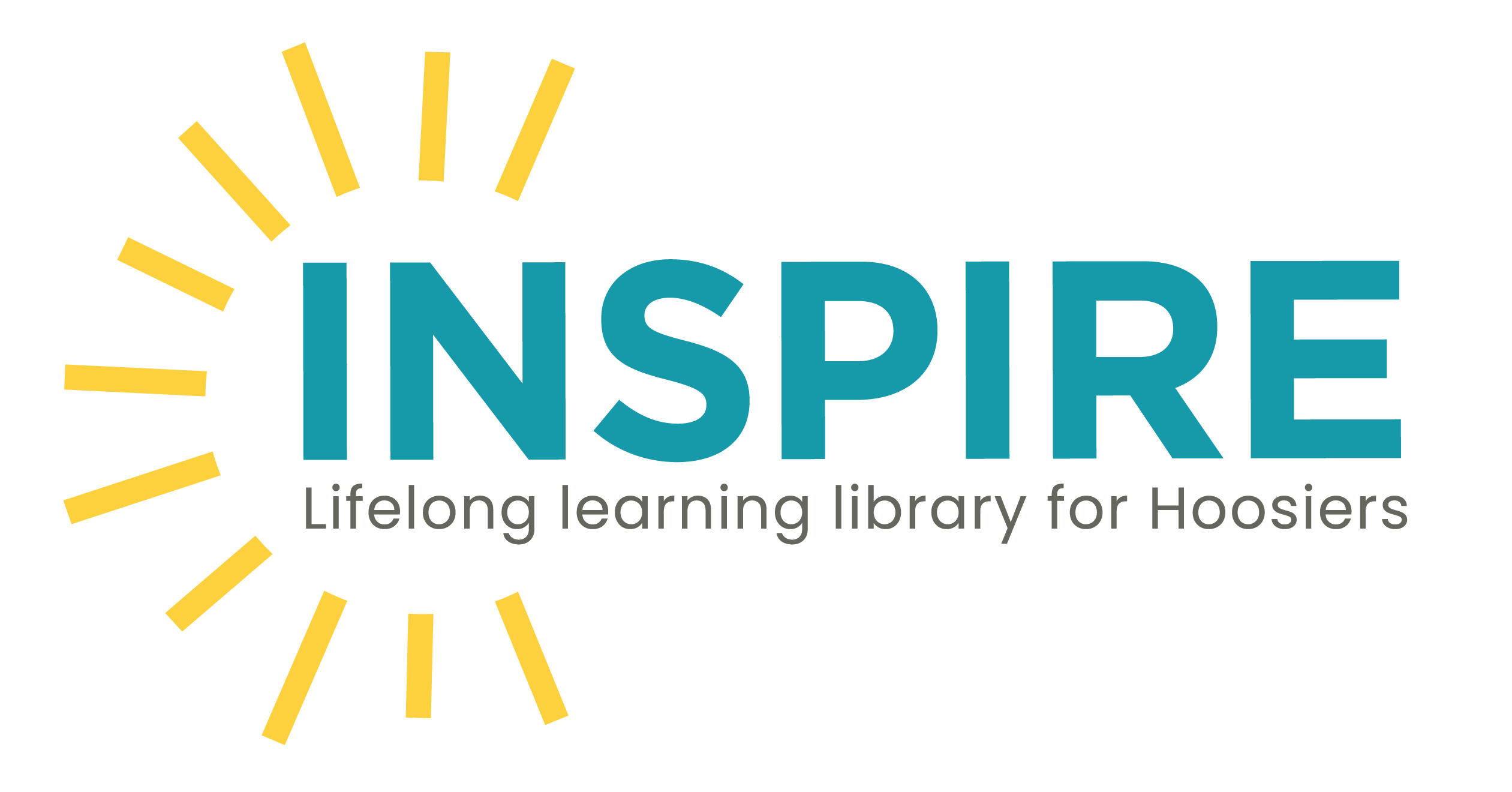Have you ever wondered how books, CDs and DVDs get from library to library in Indiana? Your local public or academic library will place a request on your behalf for an item that your library or library system does not own. This request is processed through Indiana Share and coordinated at the Indiana State Library by a team that works in our Library Development Office.
Leigh Anne Johnson is the resource sharing coordinator for the Indiana State Library. She makes sure that InfoExpress, the library courier system, is running smoothly. She acts as a liaison between Now Courier, the company who runs the courier system, and 322 Indiana libraries to coordinate the best possible transit service. She also oversees the Indiana Share program and keeps statistics on InfoExpress, Indiana Share and INSPIRE, which is our statewide grouping of databases offered for free to Indiana residents.
 Eric Altemus is a newcomer to the Indiana State Library, but is very experienced with using ILLiad, the interlibrary loan software that runs Indiana Share. He sends out roughly 250 Share requests daily. He also processes the spreadsheets of received and returned items, and renewal requests sent to us from borrowing libraries. He assists Leigh Anne with requests for InfoExpress canvas bags needed at libraries for transit. The team also cleans and maintains the transit bags as they come back in before they are put back into circulation.
Eric Altemus is a newcomer to the Indiana State Library, but is very experienced with using ILLiad, the interlibrary loan software that runs Indiana Share. He sends out roughly 250 Share requests daily. He also processes the spreadsheets of received and returned items, and renewal requests sent to us from borrowing libraries. He assists Leigh Anne with requests for InfoExpress canvas bags needed at libraries for transit. The team also cleans and maintains the transit bags as they come back in before they are put back into circulation.
 The State Library also loans most of the general collection through Interlibrary loan requests. The staff in the Circulation Support Division pull the items and send them out through InfoExpress, which picks up and delivers items to the State Library every weekday. The State Library fulfills interlibrary loan requests for Indiana state employees for books and articles needed for work in their agencies. Those requests are processed by the circulation staff, as well. When the InfoExpress driver delivers and picks up materials at the State Library, the circulation desk is the location where the items are exchanged.
The State Library also loans most of the general collection through Interlibrary loan requests. The staff in the Circulation Support Division pull the items and send them out through InfoExpress, which picks up and delivers items to the State Library every weekday. The State Library fulfills interlibrary loan requests for Indiana state employees for books and articles needed for work in their agencies. Those requests are processed by the circulation staff, as well. When the InfoExpress driver delivers and picks up materials at the State Library, the circulation desk is the location where the items are exchanged.
 The ILL team strives to keep the system running smoothly, but if you do have issues with InfoExpress or Indiana Share, please contact us.
The ILL team strives to keep the system running smoothly, but if you do have issues with InfoExpress or Indiana Share, please contact us.
This blog post was written by Leigh Anne Johnson, resource sharing coordinator at the Indiana State Library.


